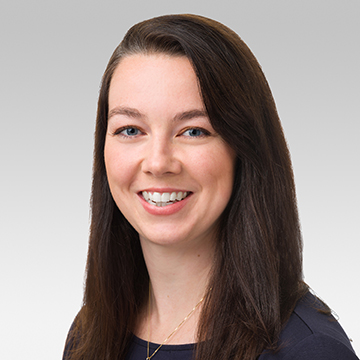Easing Transitions in Dementia Care

Northwestern Study of Dementia Patients and Caregivers Provides New Insights into Medication Management Responsibilities (Adobe Images)
By Amanda Dee
August, 6 2024
Caregiving for family members with Alzheimer’s disease or other dementias is often a complicated, long-term commitment. Older adults with dementia almost always have other chronic illnesses and medications to treat them, with many people taking upwards of eight regular prescriptions (2). As their family members’ memory and cognitive function deteriorate, caregivers must then adapt to potentially fraught changes in their involvement.
In the first study to examine patient-to-caregiver transitions in medication management among this population (3, 4), Northwestern University investigators found that older adults in the early stages of dementia may not rely on family caregivers to manage their medication as much as clinicians previously thought.
The study, published in the Journal of the American Geriatrics Society, analyzes interviews with 32 pairs of patients from Chicago diagnosed with mild to moderate dementia or cognitive impairment and their family caregivers. Importantly, both older adults and their caregivers reported significant value in older adult independence.
“I have consistently observed this preference, and yet I continue to be surprised. I often begin these studies expecting caregivers to have assumed a lot of responsibilities but find this is not the case,” said corresponding author Rachel O’Conor, PhD, MPH, a member of the Institute for Public Health and Medicine and an assistant professor in the Divisions of General Internal Medicine and Geriatrics at Feinberg School of Medicine.
Through the Institute for Public Health and Medicine, O’Conor leads the Psychosocial Support Program at the Center for Applied Health Research on Aging (CAHRA), whose director, Michael Wolf, PhD, MPH, served as senior author on the paper. O’Conor’s research program aims to help older adults and families engage in health management in the context of their everyday lives.

A balance must be struck between maintaining older adult independence while encouraging early caregiver involvement with medication management responsibilities.”
This qualitative method also allowed researchers to evaluate all the steps involved in medication management, from deciding to fill a prescription to monitoring side effects and proper use (5).
Investigators identified barriers to medication adherence specific to the caregiver, to the healthcare system and to the relationship between caregiver and older adult. These relationships, usually between parents and their adult children or between spouses, may already be difficult. Children of caregivers reported the most challenges. For one, parents may struggle with the idea of their child acting as their caretaker. Study participants also cited challenges with older adults’ desire to keep their health private and with handling complex drug regimens. For those caregivers involved in managing medications for someone with moderate dementia, living separately was often cited as a major obstacle.
Notably, only one of 32 pairs had a conversation about future changes to medication responsibilities; normally, changes occurred in reaction to a health incident or medication error. This is a gap clinicians can fill, spurring proactive conversations on a regular basis, O’Conor emphasized.
“Clinicians are trusted objective third parties,” she continued. “By asking probing questions, such as ‘walk me through how you take your medicines,’ they can better understand how patients and caregivers are organizing their medication schedules and make suggestions for transitions.”
Investigators also hope to share dementia resources through patient portals soon.
As research in this area develops, O’Conor stresses the range of support involved with this patient population. “A balance must be struck between maintaining older adult independence while encouraging early caregiver involvement with medication management responsibilities,” O’Conor said. “It is a fine balance, but one we plan to pursue in the future.”
Research reported in this publication was supported by the National Institute on Aging (K01AG070107). This study was also supported in part by an Alzheimer's Disease Core Center grant (P30AG013854) from the National Institute on Aging to Northwestern University, Chicago Illinois. Additionally, institutional support from the National Institutes of Health's National Center for Advancing Translational Sciences (UL1TR001422), and the Claude D. Pepper Older Americans Independence Center at Northwestern Feinberg School of Medicine (P30AG059988).